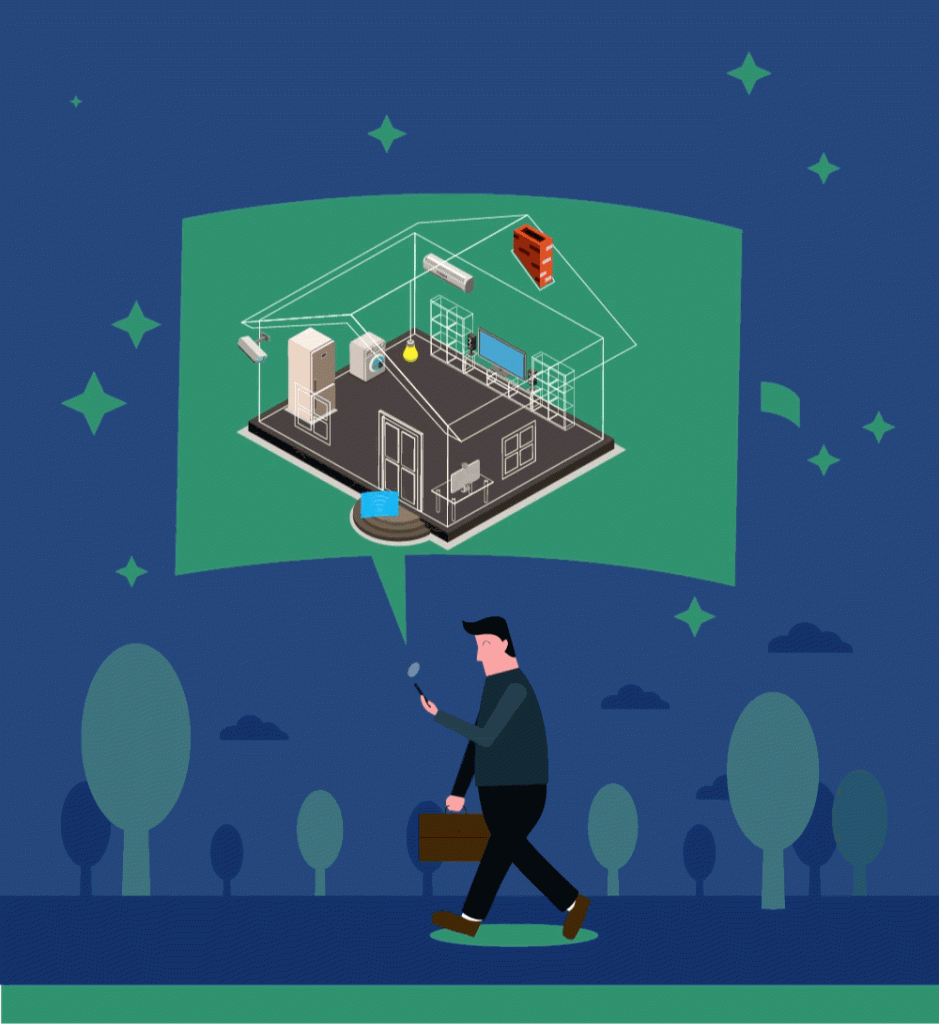The concept of a “smart home” is evolving rapidly, and Artificial Intelligence (AI) is at the forefront of this transformation. As technology continues to advance, AI-driven smart homes are no longer just about automated lights or programmable thermostats. They are becoming intelligent ecosystems that learn, adapt, and respond to the needs of their inhabitants. From personalized home experiences to enhanced security, AI is redefining what it means to live in a smart home.

What Is an AI-Driven Smart Home?
An AI-driven smart home integrates artificial intelligence with everyday household devices to create a connected, automated environment. Unlike traditional smart home systems that require manual programming, AI-powered homes utilize machine learning and natural language processing to understand and predict user preferences. This results in a seamless, intuitive experience that goes beyond simple automation.
Key Features of AI-Driven Smart Homes
- Voice-Activated Assistants: Voice assistants like Amazon’s Alexa, Google Assistant, and Apple’s Siri are already popular in many households. These AI tools allow homeowners to control devices, check the weather, and even manage schedules using simple voice commands.
- Predictive Maintenance: AI can monitor the health of home appliances and systems, such as HVAC or plumbing, alerting homeowners when maintenance is needed. According to Statista, the predictive maintenance market is expected to grow to $23.5 billion by 2024, driven largely by the increased adoption of AI in smart homes.
- Enhanced Security: AI-enhanced home security systems use facial recognition, motion detection, and even behavioral analysis to identify potential threats. For example, Google’s Nest Cam IQ can differentiate between a person and a pet, reducing false alerts.
- Energy Management: Smart thermostats like the Nest Learning Thermostat use AI to learn your schedule and adjust the temperature for optimal energy efficiency. A report by the U.S. Department of Energy found that AI-powered thermostats can save homeowners up to 15% on heating and cooling costs annually.
The Impact of AI on Home Automation
AI is taking home automation to a new level by offering more than just convenience—it’s making homes smarter, safer, and more energy-efficient. Here are some key ways AI is enhancing home automation:
Personalized Living Experiences
AI can learn a family’s routine and automatically adjust lighting, temperature, and even music based on preferences. Imagine walking into a room where the lights dim to your favorite level, your morning playlist starts playing, and your coffee begins brewing—all without you saying a word. AI algorithms can analyze daily patterns and create a personalized environment, making life more comfortable.
Proactive Home Management
AI isn’t just reactive; it’s proactive. For instance, AI-integrated refrigerators can monitor food supplies and send alerts when certain items are running low. Some even suggest recipes based on what’s left inside. Meanwhile, AI-powered washing machines can detect fabric types and adjust the washing cycle accordingly.
Smart Security Solutions
AI-driven smart security systems use more than just cameras. They employ machine learning to analyze behavioral patterns and detect unusual activities. Systems like Ring and Vivint incorporate AI to differentiate between family members, delivery personnel, and potential intruders, minimizing false alarms. Moreover, AI can send real-time alerts to your smartphone if suspicious activity is detected, allowing for immediate action.

Challenges and Considerations
While AI-driven smart homes offer numerous benefits, they also present certain challenges:
- Data Privacy Concerns: AI systems collect a significant amount of personal data to function effectively. Managing and protecting this data is crucial. According to a report by Pew Research Center, 52% of Americans are concerned about privacy issues related to smart home devices.
- Cost of Implementation: The initial cost of setting up an AI-powered smart home can be high. Devices like smart speakers, cameras, and sensors need to be compatible and integrated, which can require a significant investment.
- Interoperability Issues: Not all smart devices communicate well with one another. A lack of standardization can result in fragmented systems that are difficult to manage. Companies like Amazon and Google are working to create universal platforms to address these issues, but there is still progress to be made.
The Future of AI-Driven Smart Homes
The future of AI in home automation looks promising. As technology continues to develop, we can expect to see even more sophisticated systems that offer higher levels of integration and intelligence. According to Grand View Research, the global smart home market is projected to reach $537 billion by 2030, with AI as a key driver of this growth.
In the coming years, smart homes will likely incorporate more advanced AI features such as emotional recognition, which could adjust home settings based on a person’s mood. Imagine a home that senses when you’re stressed and responds by dimming the lights, playing calming music, and adjusting the temperature to create a soothing environment.
Is an AI-Driven Smart Home Right for You?
AI-powered smart homes offer a wide range of benefits, from increased convenience and security to energy savings and enhanced comfort. However, before investing, it’s essential to consider factors like cost, data privacy, and compatibility with existing devices.
If you’re interested in learning more about how AI technology can be integrated into your home, contact TLC Creative Technology. With expertise in AI solutions, robotics, and cutting-edge technology, TLC Creative can help you design a smart home that aligns with your lifestyle needs.
Embrace the future of home automation and experience the convenience, safety, and personalization that only AI can provide.


